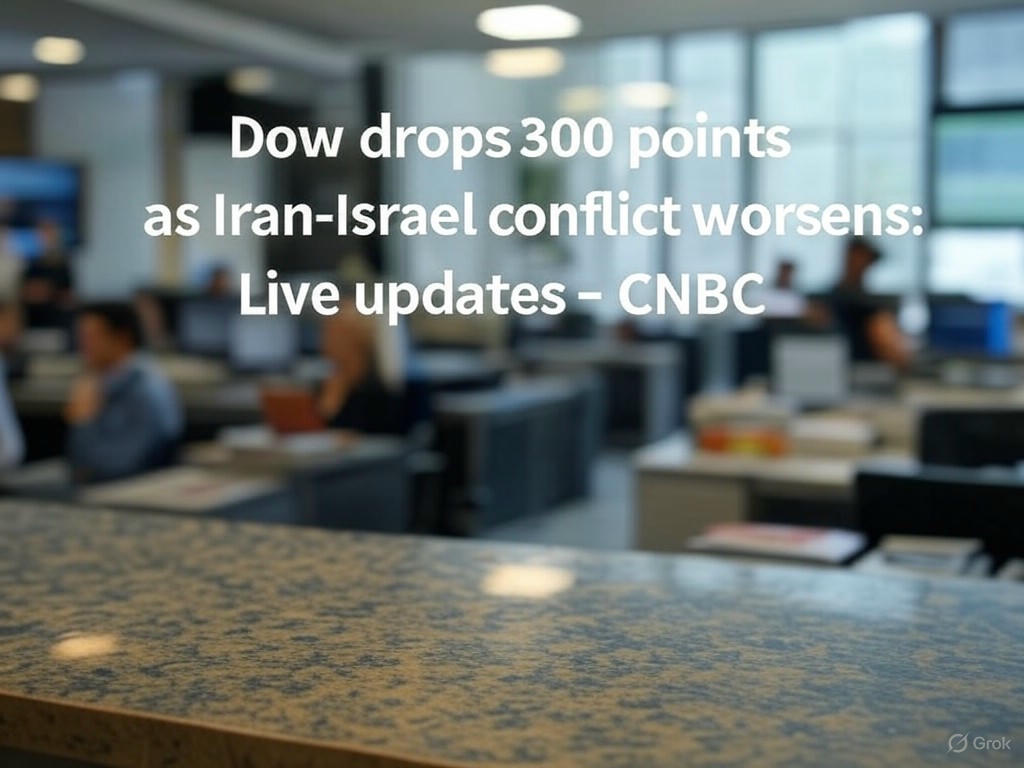Market Turmoil: Dow Plunges 300 Points Amid Escalating Iran-Israel Tensions
The financial markets took a significant hit this week as the Dow Jones Industrial Average plummeted by 300 points in a single trading session on Tuesday. Investors, gripped by uncertainty, reacted to the intensifying conflict between Iran and Israel, which has sparked widespread concern over potential disruptions in the Middle East. The region, a critical hub for global energy supplies, often sees its geopolitical unrest ripple through to Wall Street, and this latest flare-up is no exception. As news of military escalations and diplomatic breakdowns dominated headlines, the stock market reflected the growing anxiety among traders who fear the broader economic implications of a prolonged crisis.
The ongoing strife between Iran and Israel has entered a particularly volatile phase, with reports of heightened military activity and sharp rhetoric from both sides. Analysts point out that the conflict could threaten oil production and supply chains, given the Middle East’s pivotal role in global energy markets. A spike in oil prices often follows such unrest, and early indicators suggest that energy stocks are already feeling the pressure. Beyond energy, sectors like technology and consumer goods also saw declines as investors shifted toward safer assets like bonds and gold. Market experts warn that if the situation deteriorates further, inflationary pressures could intensify, adding another layer of complexity to an already uncertain economic landscape.
Adding to the market’s woes, the latest developments come at a time when the U.S. economy is grappling with its own set of challenges, including rising interest rates and persistent inflation. Some financial strategists believe that the geopolitical tensions could exacerbate these domestic issues, potentially derailing recovery efforts. ‘The Middle East conflict is a wildcard that markets hate,’ said one portfolio manager. ‘It introduces unpredictability at a time when clarity is desperately needed.’ Investors are now closely monitoring statements from global leaders and updates on ceasefire negotiations, hoping for any sign of de-escalation that might stabilize the markets.
Despite the downturn, not all hope is lost. Some analysts see the current dip as a potential buying opportunity for long-term investors, particularly in sectors less exposed to geopolitical risks. They argue that while short-term volatility is inevitable, the fundamentals of many U.S. companies remain strong. However, caution remains the watchword, with many advising a wait-and-see approach until the situation in the Middle East shows signs of resolution. As the week progresses, all eyes will be on both the battlefield and the trading floor, with the potential for rapid shifts in sentiment based on the smallest developments. For now, the Dow’s 300-point drop serves as a stark reminder of how interconnected global events are with financial stability, urging investors to brace for what could be a bumpy road ahead.


